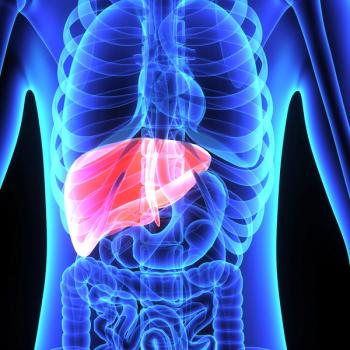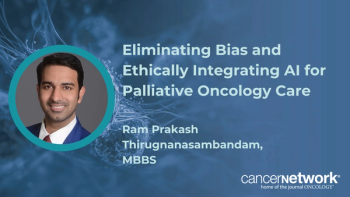
BiTE Therapy May Impact Standard of Care in Multiple Myeloma, Expert Says
Ashley E. Rosko, MD, highlights potential changes on the horizon to the standard of care in multiple myeloma therapy, and discussed the personalization of treatment based on transplant eligibility.
The standard of care in multiple myeloma may change due to the introduction of bispecific T-cell engager (BiTE) therapy, according to Ashley E. Rosko, MD. BiTE therapy can be used to treat older patients for whom other treatments may not be viable. Rosko also remarked on transplant eligibility, and the ability to design treatments based on a patient’s health and wellness.
Rosko, an associate professor in the Department of Internal Medicine at The Ohio State University, medical director of the Oncogeriatric Program at The Ohio State University Comprehensive Cancer Center – The James, and co-director of the Cancer and Aging Resiliency Clinic at The James, spoke with CancerNetwork® after moderating a discussion at an Around the Practice® program. She and her colleagues focused on how they would approach treatment in different patient populations.
Transcript:
With the fantastic advances that we have in multiple myeloma, I’m looking forward to utilizing the bispecific T cell engager [therapy], or BiTE therapy, for patients with multiple myeloma, as well as advances in CAR T-cell therapy. Increasingly, so many of these opportunities for our patients are being utilized more and more amongst older adults with cancer as well. Myeloma is a disease [most commonly found in] aging adults. Being able to deliver these advanced therapies to all patients is an important advance in the field.
When it comes to unmet needs for patients with multiple myeloma, a lot of our decision-making is framed around [the distinction between] transplant-eligible and transplant-ineligible. Importantly, there are going to be new therapies, such as CAR T-cell therapy and others, that are offered for patients.
With this focus on transplant eligibility, we will see that this will shift, and we are seeing more and more patients getting other opportunities and other cellular therapies. Importantly, I’m looking forward being able to offer patients therapies based on their individual health and fitness.
Newsletter
Stay up to date on recent advances in the multidisciplinary approach to cancer.











































